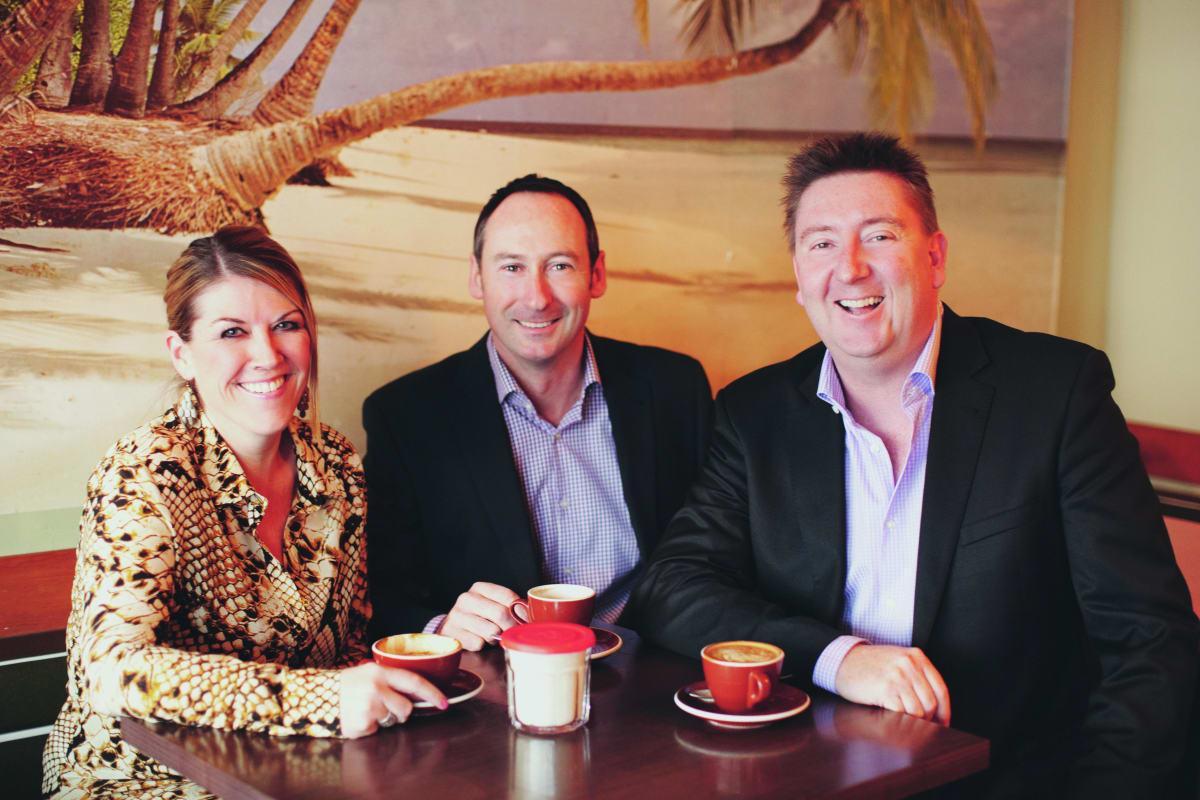Health Minister Andrew Little is to create a new-look regulator to scrutinise the therapeutic claims of both pharmaceuticals and natural health products
Since Go Healthy’s three founders sold their first health supplements in 2008, they’ve learned the hard way about justifying their claims to regulators: the company was fined $337,500 after falsely claiming its supplements were “made in New Zealand” when most of its key ingredients were imported.
That was about country of origin claims; now the debate is about therapeutic claims. Health products giant Nestlé Health Science has just signed a deal to buy Go Healthy and its sister companies – which co-founder Greg Driscoll says is a “huge endorsement” of the Kiwi companies and their 270 employees.
Go Healthy is the new poster child of the country’s lucrative natural health products export industry, as the sector lobbies for greater freedom to make “evidence-based” therapeutic claims about its vitamins, mineral supplements, herbal remedies, animal extracts, probiotics and more.
The Government supports the sector’s aspirations to grow its export earnings by $500 million or more – but Health Minister Andrew Little says much comes down to that phrase “evidence-based”.
Is that a similar standard to pharmaceuticals – peer reviewed, clinical trials? The industry says, not necessarily; Little says, probably yes. “We may have some differences, there,” he acknowledges.
“The regulatory standards won’t be at the same level as for pharmaceuticals,” Little tells Newsroom, “but it is to recognise that some processed natural health products are not risk-free, and therefore there needs to be some protections around claims made about them.
“We’re seen as an exporter of high quality food and beverage exports, and I would include in that natural products about which therapeutic claims are made. I think part of our reputation is because we regulate well, and the quality of our regulation is recognised and respected overseas, and we need to maintain that.”
– Andrew Little, Minister of Health
“This is stuff that people are ingesting or applying to themselves, and if claims are being made that they’re going to do beneficial things, therapeutic things, then that ought to be substantiated. I don’t think that’s unreasonable.
“We just want to make sure that whatever claims are made can be substantiated. Evidence is evidence, and has to be robust and able to be validated and substantiated.”
He says natural health products have “great potential” to grow their export earning and boost the New Zealand economy. “We’re seen as an exporter of high quality food and beverage exports, and I would include in that natural products about which therapeutic claims are made. I think part of our reputation is because we regulate well, and the quality of our regulation is recognised and respected overseas, and we need to maintain that.”
There will be a new regulator overseeing pharmaceuticals, medical devices and natural health products. The foundation stone of that new regulator will be Medsafe, but it will be bigger than that.
“It makes sense to have one regulator,” Little says.
“The work of scrutinising pharmaceutical products and their safety will continue. There are a lot of other products that are not pharmaceutical products and not medicines that also will need to fall under the regulator, and they include things like sunscreens and other topical treatments that aren’t regarded as a pharmaceutical. So whether it continues to be called Medsafe, that is yet to be determined.”
This has been a long, slow process. The Government has brought back a Therapeutic Products Bill that was first introduced by the previous Helen Clark Labour Government, he says, and is reshaping it to introduce to Parliament in the next two or three months. That includes dropping the National Government’s standalone natural health products bill, which made it as far as a second reading in 2017, and instead incorporating aspects into the new bill it is preparing to table.
The natural health products industry feels Medsafe is stymying their bids to certify their products and their therapeutic claims, but Little’s frustration is with the enabling legislation rather than with the Medsafe organisation. “The current legislation, the 1981 Medicines Act, is more than 40 years old now,” he says. “And even if you just confine it to medicines, there’s a whole bunch of new pharmaceutical technologies and treatments that are available.
“I don’t think Medsafe, as an outfit within the Ministry, is lacking capability. I just think when we are regulating substances that claim to have a therapeutic benefit, whether it’s pharmaceutical or not, we have to have appropriate regulation to protect consumers. That’s what we’re aiming to do.”
One of the bigger players in natural health product retail and export, Go Healthy referred inquiries about the new regime to its industry body. “Natural Health Products New Zealand is in the best position to discuss the regulatory change for natural health products,” says Kevin Anstiss, the company’s marketing boss.

Samantha Gray, a molecular biologist by training, is managing director of product development consultancy BioEquitas, and leads the lobbying for Natural Health Products NZ. The industry group has 142 members employing more than 4000 workers and, according to a 2019 Industry survey, they export $642 million a year.
Both the Government and the industry agrees there should be greater leeway to make therapeutic claims – but Natural Health Products NZ would go much further.
“Our regulations are so old that they specifically prohibit any therapeutic purpose claim, despite a product actually having evidence to support health benefit,” Gray says.
“We’re not saying, just because somebody’s aunty used this and felt better – we’re talking about actual published evidence that stands up to scrutiny.”
– Samantha Gray, Natural Health Products NZ
She cites the examples of a turmeric pill made by Australia’s Blackmores. In Australia it’s marketed as Curcumin One-a-Day, and the producers are allowed to say that it “relieves inflammation and is traditionally used in Ayurvedic medicine to decrease mild joint aches and pains”.
In New Zealand under the existing regulatory regime, Blackmores can only say that it “supports digestive comfort and reduces free radicals forming in the body which promotes general health and wellbeing”.
Big export markets like Malaysia and Saudi Arabia, rely on Medsafe’s New Zealand certification for New Zealand products – which means, in Gray’s view, that New Zealand products aren’t able to compete on a level playing field against overseas products.
Gray argues those claims could be based on clinical studies, but they could equally follow the lead of other countries in relying on “a robust body of evidence that supports the the function”.
“We’re not saying, just because somebody’s aunty used this and felt better – we’re talking about actual published evidence that stands up to scrutiny.
“As an industry body, we’re encouraging the Government to ensure that all other types of evidence-based health claims that should be permitted for natural health products are permitted, which is really important so that consumers can actually get the information about what the product does.”
One of the first challenges is to define natural health products. According to a Cabinet paper this year, they include vitamin and mineral supplements, herbal remedies, animal extracts, probiotics, enzymes and essential fatty acids. They also include preparations made for and used in rongoā Māori, and the preparations used in in traditional healing systems such as traditional Chinese medicine and Ayurveda.
“The difference between natural health products and medicines is not as clearcut as dividing between naturally derived and chemically synthesised products,” the paper argues. “Many pharmaceuticals are derived from or contain ingredients from natural sources, and some natural ingredients and products pose risks to consumers.”
According to a report by senior lawyers at Bell Gully, The Big Picture – Health: A prescription for change, the “overdue” new regime will include medical devices, novel devices and natural health products, and their import and export.
“Therapeutic products, including medicines and medical devices, have been essential to New Zealand’s pandemic response. However, the legislation regulating such products is now over 40 years old, has significant gaps and has been the subject of criticism for decades.”
New Zealand and the US are the only high-income countries that allow direct- to-consumer advertising of medicines and other therapeutic products, it says. There are strong views on the pros and cons of these adverts and their claims. “Even if such advertising is retained, it may be subject to greater restrictions in future,” the report says.
Officials are revisiting the contentious issue of natural health products: they consider that natural health products generally pose a higher risk than foods, although a lower risk than medicines.
“Because New Zealand cannot certify that natural health products meet product safety/quality standards, New Zealand-made products are not being accepted for sale in some jurisdictions.”
Laura Hardcastle, a senior associate at Bell Gully in Wellington, wrote the report alongside law partner Kirsty Dobbs. Hardcastle has recently submitted her doctoral thesis on regulatory reform for medical devices.
Hardcastle says there’s previously been consultation with the industry about the new regime, at least in terms of its regulation of medicines, medical devices and novel products. “On the one hand, some submitters feel it’s a good thing to align with the international approach, and show that New Zealand is taking steps in this area,” she says.
“But of course, there’s inevitably nervousness when you embark on this kind of reform – is it going to put in too many barriers, is it going to create new compliance costs, is it going to reduce the products that might be available?
“The proposal in the new Therapeutic Products Bill, the draft bill that was put out in 2018, was that you would indeed have a regulator that would take over Medsafe’s role. Whether that will be called Medsafe, per se, is not clear. It would certainly encompass Medsafe’s current functions, as well as any existing any further functions that were given to it under any new legislation.”
Hardcastle said it could help New Zealand export businesses if there was a developed certification and regulatory regime. “One of the questions that will have to be answered as part of the reform is the extent to which New Zealand is relying on overseas certification. At the moment, Medsafe takes into account studies and approvals that have been given overseas when considering things like approvals of medicines.
“Of course, this area is a reasonably complex one and there’s quite a lot of history around attempts to reform it in the past. We saw the attempts to establish an Australia and New Zealand therapeutic products authority back in the 2000s – that didn’t eventuate. So there have been moves in this space but they’ve never quite gotten through to fruition.
“There will be that opportunity at [the] select committee stage for people to have a say, and I’m sure that natural health products will be one of the areas that people will be quite interested in.”
Among those watching the new therapeutic products regulations will now be food multinational Nestlé. Last year, the Financial Times reported an internal document acknowledging 60 percent of the company’s mainstream food and drinks could not be considered healthy under a “recognised definition of health”.
In response, Nestlé issued a statement to say it is “working on a company-wide project to update its pioneering nutrition and health strategy”. The acquisition of New Zealand’s Go Healthy is part of that.
This content was originally published here.




















